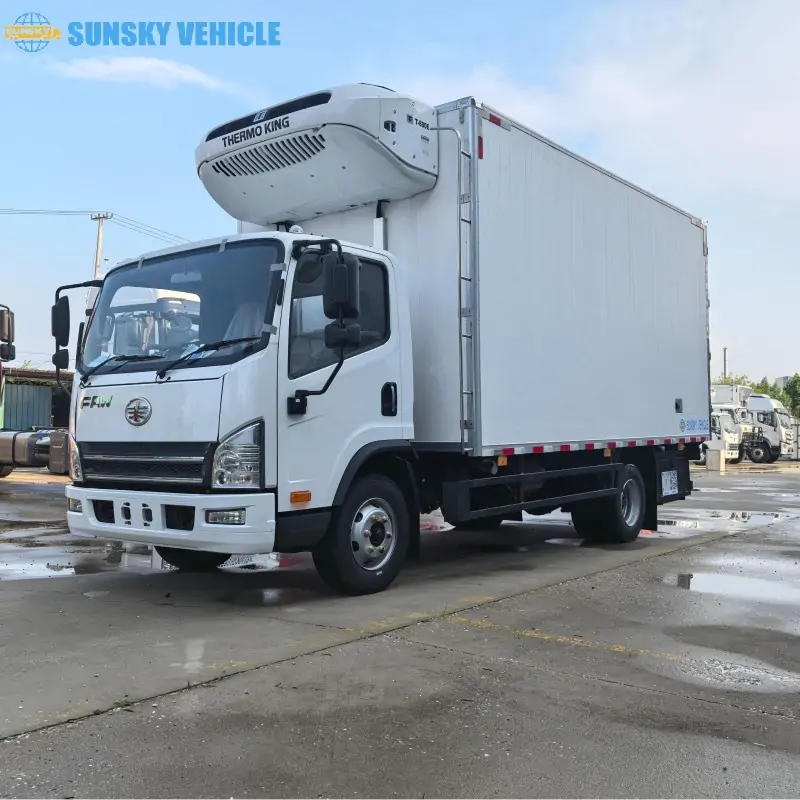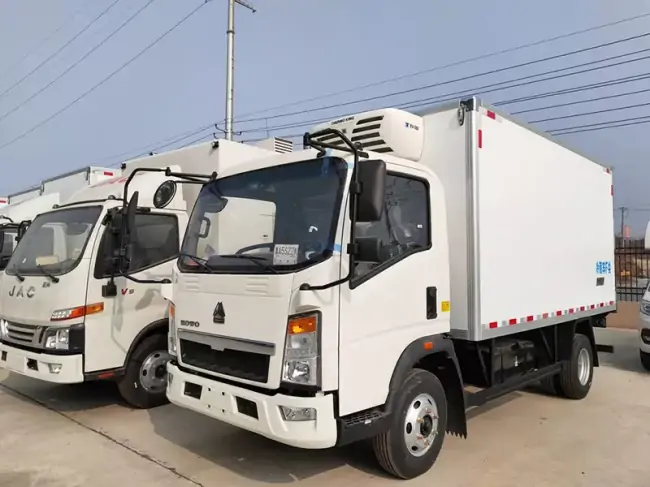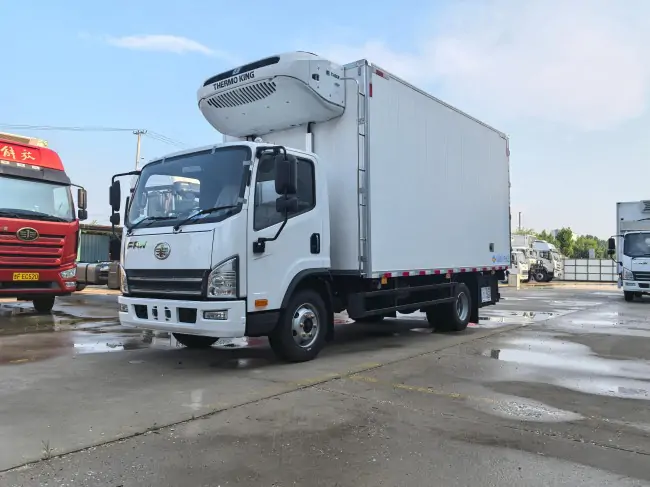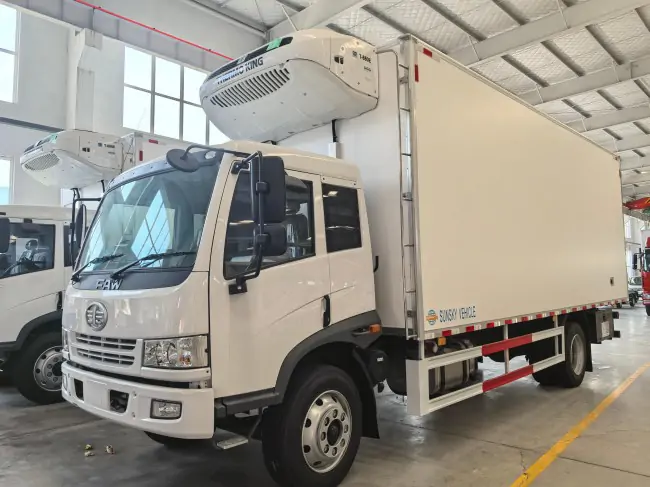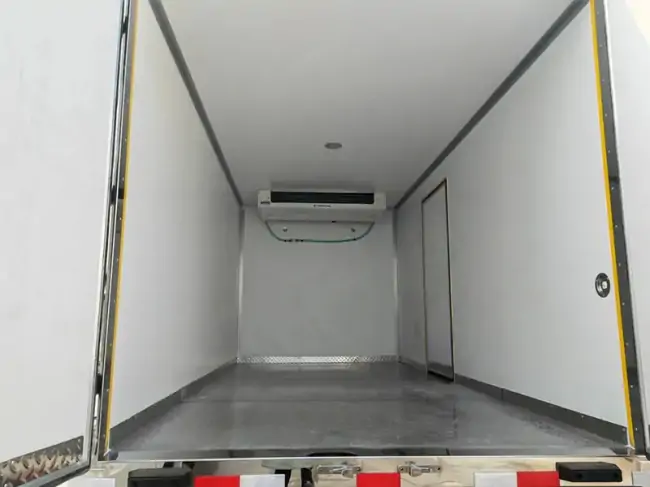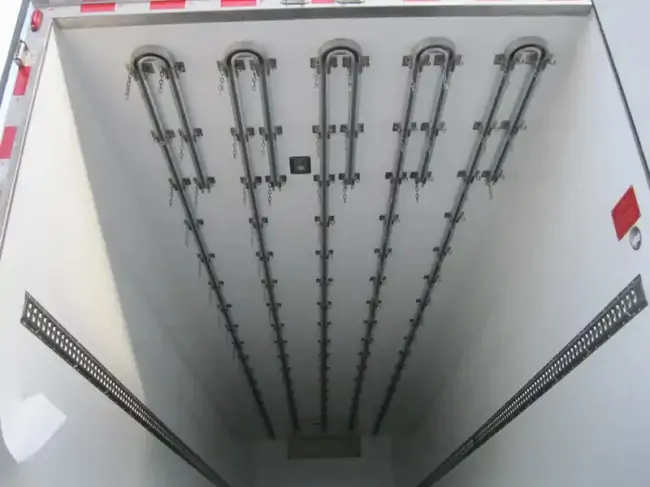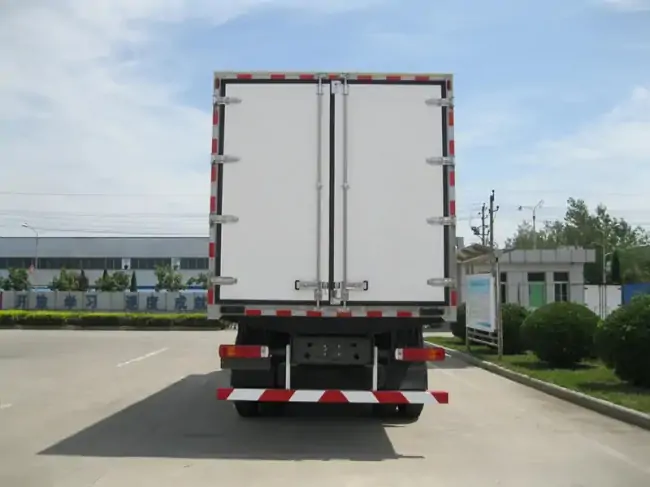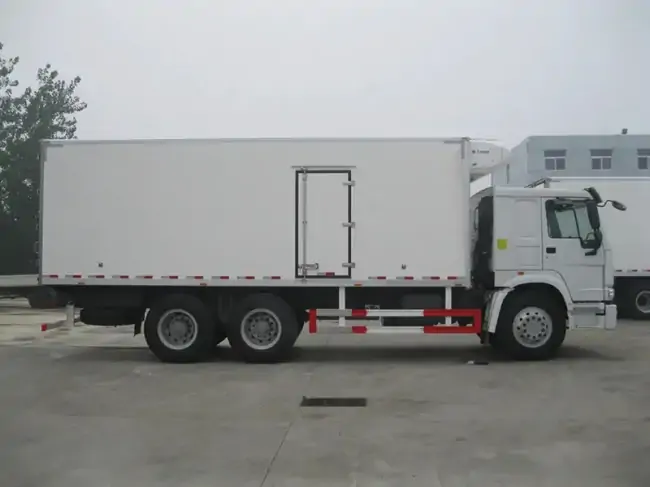Refrigerated Truck
We are proud to offer a robust selection of HOWO and FAW refrigerated trucks, known for their reliability and advanced cooling technology, tailored for diverse cold chain logistics needs.
Click Here
A refrigerated truck, also known as a reefer truck or chiller truck, is a specialized vehicle equipped with a refrigeration unit to maintain a consistent low temperature inside its insulated cargo compartment. This critical design preserves perishable goods during transit, ensuring their freshness and safety from pickup to delivery.
Application Scenarios:
Food Distribution
Pharmaceuticals & Medical Supplies
Floral & Horticulture
Chemicals & Industrial Goods
Catering & Events
Hazardous Materials
Request your Refrigerated Truck quote today
Our Refrigerated Truck for sale products
Sunsky Refrigerated Truck Advantage
Refrigerated Truck
Frequently asked questions
Refrigerated trucks maintain precise temperature control through a sophisticated combination of highly insulated walls, floors, and roofs, coupled with powerful refrigeration units. These units constantly monitor the internal temperature via sensors and cycle on/off (or adjust fan speeds) to actively cool the air to the desired set point. Some advanced systems also feature air circulation channels (like aluminum floor rails) and multi-zone capabilities, ensuring uniform temperature distribution throughout the entire cargo area, regardless of external conditions or journey length.
Choosing the right reefer truck involves several critical considerations. First, evaluate the type of cargo (frozen, chilled, or fresh) and its specific temperature requirements. Second, determine the volume and weight of your typical loads to select an appropriate truck size and payload capacity. Third, consider your delivery routes – long-haul requires more robust units and potentially a sleeper cab, while urban delivery might benefit from side doors. Finally, assess the refrigeration unit's power, insulation quality, fuel efficiency, and the manufacturer's after-sales service and parts availability.
Chiller trucks play a vital role in food safety by maintaining low temperatures that inhibit bacterial growth and enzymatic activity, which are primary causes of food spoilage. By ensuring an unbroken cold chain from farm to fork, they prevent temperature abuse that could lead to foodborne illnesses. This preservation extends shelf life, reduces waste, minimizes product recalls, and ultimately delivers fresher, safer food products to consumers, significantly contributing to public health and economic efficiency in the food supply chain.
The typical lifespan of a refrigerated truck's refrigeration unit can range from 10 to 15 years, heavily depending on usage, maintenance, and operating conditions. To extend its lifespan, regular preventative maintenance is crucial:
Scheduled Servicing: Adhering to manufacturer-recommended service intervals for filter changes, fluid checks, and component inspections.
Condenser Coil Cleaning: Regularly cleaning coils to ensure efficient heat exchange and prevent compressor overwork.
Refrigerant Level Monitoring: Ensuring proper refrigerant levels to prevent system strain.
Belt & Hose Inspection: Checking for wear and tear on belts and hoses.
Electrical System Checks: Verifying wiring and sensor integrity. Proper operation, avoiding overloading the cooling capacity, and addressing minor issues promptly also contribute significantly to longevity.
Yes, refrigerated trucks come in various body types and configurations to suit specific needs. The most common are:
Rigid Refrigerated Trucks: A single unit where the insulated body is permanently mounted on the truck chassis, ideal for urban distribution.
Refrigerated Semi-Trailers (Reefer Trailers): A separate insulated trailer pulled by a tractor head, designed for large volume, long-haul transport.
Multi-Temperature Zone Reefers: Feature insulated partitions allowing different compartments to maintain separate temperature settings for mixed cargo loads (e.g., frozen and chilled goods in one trip).
Side-Door Reefers: Equipped with additional side access doors for easier delivery in tight spaces or for frequent multi-drop routes.
Roll-up Door Reefers: Some models feature roll-up rear doors, though less common due to insulation challenges, offering quick access.
Reefer vans manage defrost cycles to protect cargo temperature stability through a carefully controlled process. Most units utilize hot gas defrost, where warm refrigerant is diverted through the evaporator coil to melt accumulated ice without significantly raising the cargo compartment's temperature. Defrost cycles are typically initiated automatically based on time intervals, run-time, or when sensors detect ice buildup. The cycle duration is minimized, and fans are often shut off during defrost to prevent warm air circulation, ensuring minimal impact on sensitive cargo while maintaining evaporator efficiency.
Connect with us
Ready to partner? We’re convinced Sunsky Vehicle is your best choice! Reach out through the form or by phone.

*Our team will answer your inquiries within 24 hours.
*Your information will be kept strictly confidential.


